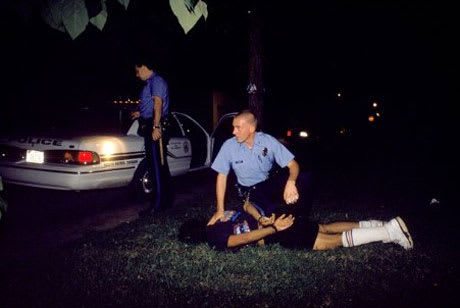What makes a person want to be a cop? For 20 years, documentarian John Langley has been looking into it, ending decades of speculation that preceded his brainstorm. In this two-disc set, fans are treated to heaps of highlight footage from across the seasons, including the original 1988 pilot shot in south Florida. Back in those days, celebrities were the stars of television, but COPS changed all that. The show proved that doing your job in front of everybody could be worthwhile entertainment, especially if you worked with a gun (and your throat). Of course, any viewing of COPS is very subjective. Those who see solid colours of good guy/bad guy will be happy with the justice served. Others, namely folks critical of the prolonged war on drugs, will see something less idyllic. Indeed, the drug war is referenced throughout the show, which makes sense since the production staff would have far fewer tapes to log without it. (Curiously, the DEAs logo is missing from the box art.) Special feature "Cops on COPS breaks the tension with a few light-hearted goofballs, ranging from a cruiser stuck on train tracks to bikini babes with a broken taillight (the officer, while professional, is no doubt hoping for porno). Even that non-lethal all-star the taser makes an appearance in its own embedded infomercial ("I never felt anything like that before!). Another starry-eyed officer reminisces about that time he choke-slammed a drunk dude onto Vegas pavement. "The gangsters respect me now, he says. Its true, criminals are more accepting if you pretend youre one of them. In "The Story of COPS, Langley shares his immortal wish: to have the show become a visual textbook for future scholars, something to point at as proof of what happened in the 20th and 21 centuries. Theres little doubt in that destiny: the shows many citations are bound to show up in a critical essay or two. But while the modern-day producers see it as a tribute, one cant help but be a bit cynical. COPS will remain a landmark cultural document, for what it changed as well as for what it didnt.
(Fox)COPS: 20th Anniversary Edition

BY Elliott MinaradiPublished Feb 21, 2008



